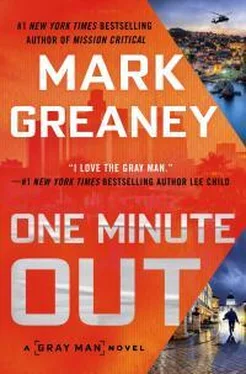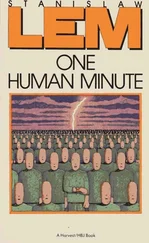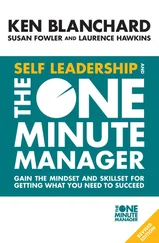I say, “And you’ve done one hell of a fine job, haven’t you?”
He looks up at my masked face, but not in anger. It’s more a look of resignation. I wonder if he knows he’s a dead man no matter if I spare him right now or not. This fact seriously hampers my ability to extract any more intel from him, but I have to try. “Tell me about the Consortium.”
With his head still low, he gives it up. “They run pipeline. They deal with Branjevo Partizans. Partizans deal with me. That it. That everything.”
He seems like he’s telling the truth, and I walk back to Talyssa. “How’s the hand?”
“It’s fine.”
She’s rubbing it still; it isn’t fine.
I say, “This is all we’re going to get out of this guy.”
“What happens to him now?” There are nerves in her voice, and I take that to mean she’s worried I’m going to just shoot my prisoner in the head and leave him hanging here like a piece of meat at the butcher shop.
Honestly, I like the imagery, but I need Talyssa, and I need her with her wits about her.
“We’re leaving him here. Alive. We’ll take your vehicle; mine’s been compromised.”
“But . . . how will we find the women?”
“We’ll discuss that on the way.”
We leave Niko Vukovic with his arms over his head. I don’t hand him the key. I do, however, pull my Jeep back down to the street and leave it there alongside the road.
His people will find him soon enough, and they will release him. Then, judging from the look on his face when he realized the Consortium had targeted him, I assume the Consortium’s people will find him, and then they will murder him.
And I, for one, won’t miss him.
• • •
We head south from Mostar, the terrified young Romanian criminal investigator looking for information about her sister’s disappearance, and me, an assassin on a poorly-thought-out quest to make up for my mistakes.
We’re a strange pair, to be sure, but for now, anyway, we have the same goal.
It’s quiet; a fresh gentle rain falls from the low gray summer sky. I look over to Talyssa; she’s rubbing her hand. I don’t see the woman who threw the punch in the bunker. I see the scared young accountant.
“How did you start working for Europol?”
She looks out the window as she talks. “I received an advanced degree in forensic accounting. I started working in economic crimes for the state prosecutor in Bucharest. After a few years I applied to Europol. Now I live in The Hague and work in money-laundering crime in the European Union.”
“And sex trafficking.”
“At the prosecutor’s office in Romania, following the money from the international criminal enterprises to the local gangs was a big part of my work. Hundreds . . . thousands of young women disappear every year in my country. They are trafficked and smuggled abroad, forced into prostitution, used as slaves, dehumanized. We could see the money making its way into the gangsters’ accounts, but it was laundered somehow, and we could never see where it came from. I moved to Europol thinking I could make a difference on a bigger level, but my office is not so interested in human trafficking. It’s seen as a law enforcement problem, not a forensic-accounting problem. They are wrong, of course, but I am still very junior, and no one listens to me.”
“I’ll listen. I want to understand what the Consortium is.”
“I have never heard the term when related to trafficking, but a consortium is just an association of organizations.”
“How does all this work, typically? Where are the victims taken?”
“They are taken to anyplace where the economy can support a large commercial sex industry. The developed nations. Europe, America, wealthier parts of the Middle East and Asia.”
“How are they taken?”
“Many different ways, but victimization is all about vulnerability. Statistics say ninety percent of sex trafficking victims suffer some kind of abuse before they are recruited. Sexual abuse, physical abuse, dire economic hardship. Often, all three.”
“What do you mean by ‘recruited’?”
“An unfair term, I agree, but that’s the term. It encompasses all the ways they are brought into the trafficking system. First, there are recruiters. These are usually women, and they make initial contact with the intended victim. Typically, this is called the grooming period. The recruiter uses money, flattery, and the like to get the victim pulled in. They make connections with them to earn their trust. And then, when they are more susceptible, transporters are brought in.”
To this I just say, “The pipeline.”
“Exactly. Vukovic said the Serbs pass them off. I imagine whoever they pass them off to passes them off again. Finally, they will be sold into slavery.”
“Do they ever escape?”
“Sometimes. Not terribly often. But if they escape their captors in a foreign country they are treated like illegal immigrants by the local governments. They have no rights, they are just shipped home. There is no witness protection, so if they say anything to the cops, the traffickers will know.
“The sad part is that many who escape return home to the same hardships they were drawn away from. Women and girls are often revictimized, time and again.”
I think of Liliana Brinza, and I hope this doesn’t happen to her again.
“Christ,” I say.
“The people running the pipelines and other systems like it have this down to an art. The way stations are hellholes, but they are also refuges. Food, music, the bonds made between the captors and women, the drugs administered to them. It’s all part of the plan. These young women and girls go into a system that has been honed for hundreds of years. Thousands of years.”
And here I am, getting in the middle of all this.
She sighs loudly now, then asks, “How can we possibly locate them in a city the size of Dubrovnik?”
“I have an idea. But you may not like it.”
“Anything. I’ll do anything to find out who is responsible.”
“I was hoping you might say that.” I breathe out a long sigh, knowing this idea isn’t great, but it’s all I have. “We use you as bait.”
She looks up at me slowly as I drive. “Bait?”
“Look, the cops have been tainted at each stop on the pipeline. Not just here in Mostar, but in the other locations, as well.”
“Yes.” I can tell she gets it. “So . . . so you are saying I go to the police in Dubrovnik and start asking questions?”
“Exactly.”
“About my sister?”
“I wouldn’t do that. If there is one chance in one hundred she could still be alive, you will endanger her by letting the opposition know you are looking for her. She just may become too incriminating for them to keep around.”
Talyssa thinks about this for a long time. “I can’t do that. I think she is gone . . . but without a body, I do not know for sure. So . . . what do I say?”
“Tell them you know about the pipeline, and you know about the Consortium.”
“But . . . what do I know about the Consortium?”
“Nothing, really, beyond the name. Throw that out there. Ad-lib. Like I did back there with Niko.”
“And then what?”
“Then return to your hotel and let me take over. They’ll come for you, I’ll get you out before they take you, and then I’ll be there to see who they are and where they go.”
She sits in silence a moment. I start to waffle. I even consider telling her we’ll think of something else because this is too dangerous. But I know there is nothing else.
She knows this, too. “Yes. That is the best idea.”
“Not sure it’s the best idea, Talyssa, but it’s pretty much the only idea I have.”
Читать дальше












